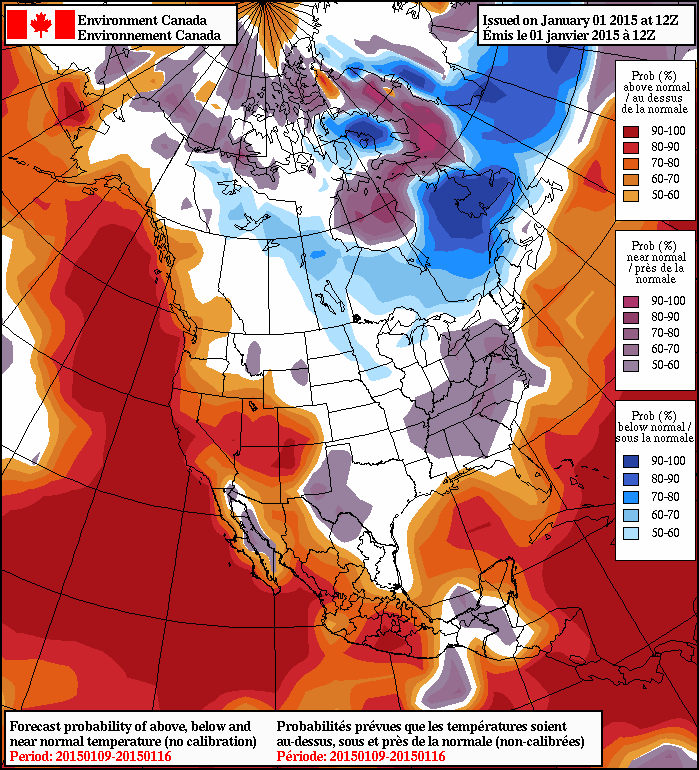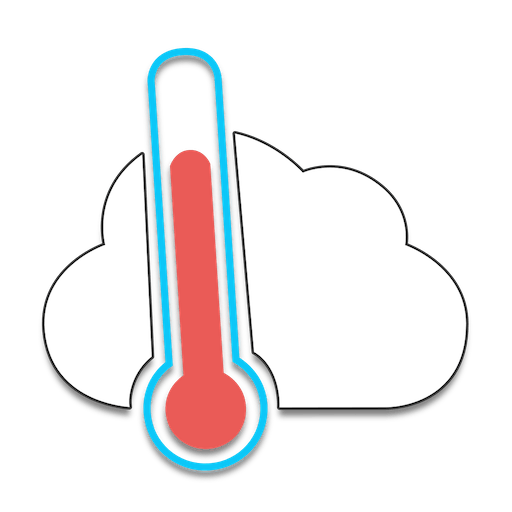An Alberta Clipper moving through the province on Friday into Saturday will pack a potent punch – likely the worst storm so far this winter for most places, including Winnipeg – bringing a decent shot of snow alongside strong winds producing significant blowing snow. To cap things off, a bitterly cold air mass will move into the region bringing extremely cold temperatures & wind chill.
Friday will start off mainly cloudy as a brief shot of light snow exits the province. Amounts from this band will be just a couple cm or less and this leading impulse will be nothing compared to what will be moving in later in the day.
Before that, though, skies will become more mixed with temperatures gradually climbing to around –14°C. Winds will remain relatively light until the Alberta Clipper moves into the region tonight.
Snow will push into Southwestern & Parkland Manitoba this afternoon and quickly spread eastwards across the remainder of the province by the evening. Snowfall will be quite intense, with rates reaching as much as 2cm/hr in the heaviest band. The heaviest snow will fall through Friday night and then taper off from west to east through the day on Saturday.

By the time the snow tapers off on Saturday, up to 25cm of snow may have fallen through the heaviest band of snow which is centered along the international border and cuts across the Southern Red River Valley. Winnipeg will likely receive on the higher end of 10–15cm of snow while amounts then taper off through the northern Parkland region and central Interlake.
Measuring that snow may be quite difficult, though, as strong northwesterly winds to 40km/h move into the Red River Valley. With all the fresh snow, widespread blowing snow is very likely on area highways with the potential for significant restrictions to visibility. In areas of the southern Red River Valley, we may even see the development of a full-on blizzard with the higher amount of fresh snowfall and slightly stronger winds due to the funnelling of the valley. Driving conditions will likely be quite poor, so be sure to give yourself plenty of additional time if you need to travel and remember to always carry a winter survival kit in your vehicle.
There’s only one story once the snow tapers off on Saturday and skies begin to clear: bitter cold. It’s going to get very, very cold across the entire province with the coldest air mass of the season diving southwards behind the clipper. Saturday will see temperatures slipping through the day to around –26°C which will then plummet down to –32 or –33°C overnight. With winds of 10–20km/h persisting overnight, wind chill values of –40 to –45 will be widespread through Southern Manitoba.[1]
Sunday will bring barely any recovery with temperatures struggling to get to a paltry –27°C. Expect the low on Sunday night to dip back down to –32 or –33°C with wind chills agin in the –40 to –45 range.
No Warmth In The Long-Range
Looking ahead to next week, conditions look dry with little to offer as reprieve from the cold. Daytime highs will moderate towards the –20°C mark, but overnight lows in the low minus-twenties will be sticking around for a while.

Looking even further ahead, there are little in the way of strong signals. There’s about a 50/50 chance of below-seasonal temperatures continuing, but compared to this week, it’s at least a trend towards more seasonal temperatures. It’s not much, but when we’re getting as cold as we will this weekend, I’ll take what I can get.
- This will likely result in an extreme cold warning being issued by Environment Canada, as their criteria is a temperature or wind chill colder than –40. ↩
